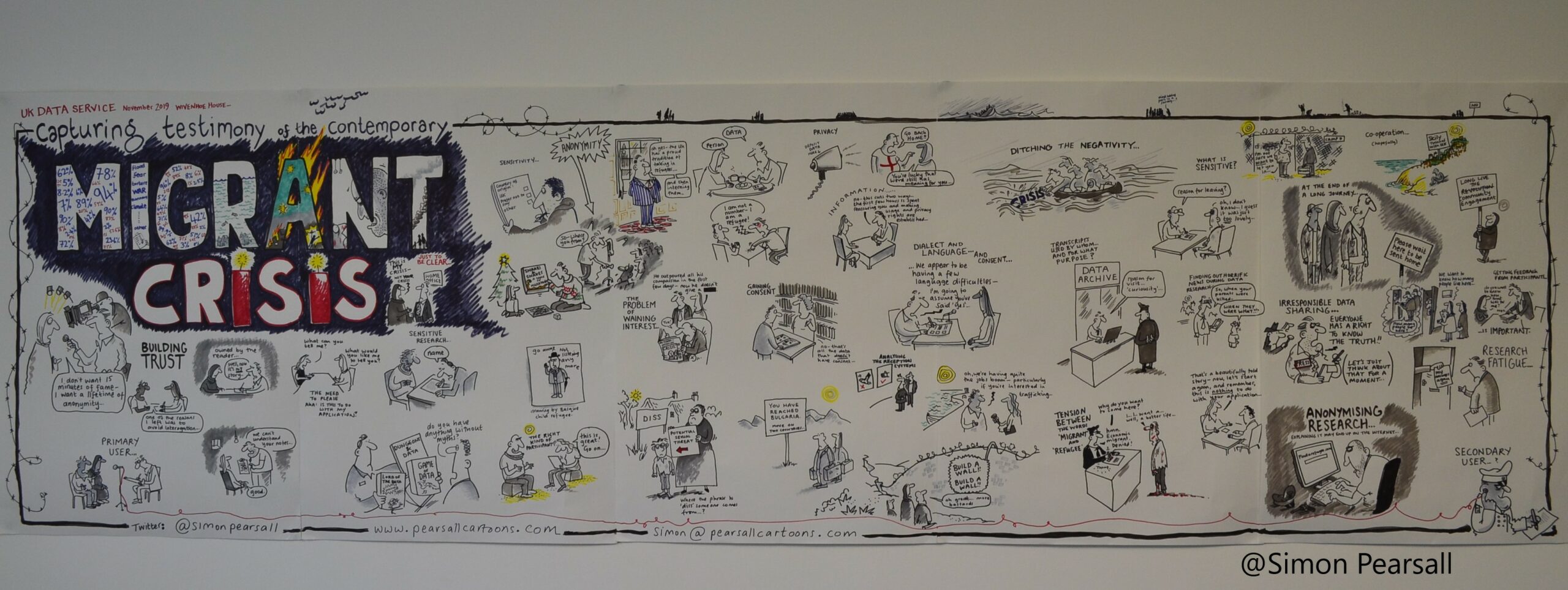Event resources
Programme| Presentation: Reusing community oral histories to explore the history of postcolonial migration to Rotterdam, Norah Karrouche| Presentation: Lived Experiences, “Moving Memories” and the Refugee Archive: The Ethics of Archiving and Oral History in the Preservation and Re-use of Migration Data, Paul Dudman| Presentation: GEMM Project: WP4. The lived experiences of migration, Darena Hristozova| Presentation: MEDMIG: Challenges, possibilities and opportunities for sharing migration data for reuse, Katharine Jones| Presentation: Update on an Anthropological investigation of the ‘Migration Crisis’ in the Mediterranean, Giorgios Tsimouris| Presentation: Researching the “Refugee Crisis”: Ethical challenges, responsibilities and opportunities, Eleonore Kofman, Alessio D’Angelo, Dora Papadopoulou, Elio Tozzi| Presentation: Citizen Scientists as stewards of community knowledge in Hamra, Beirut, Mayssa Jallad| Presentation: Research at the Refugee Council, Nina Moraitou-Politsi| Presentation: The Archive of Migrant Memories, Giulia Sbaffi| Presentation: Research Participants Perspective, Shakir Syed| Presentation: Mediterranean Missing: Understanding Needs of Families and Obligations of Authorities, Ann Singleton| Presentation: Fatal Journeys Volume 4: Missing Migrant Children, Ann Singleton See: Chapter 4. ‘Ethical considerations surrounding research on missing migrant children’ by Samuel Okyere| Presentation: Memorials to people who have died and to those missing during migration: a global project, Ann Singleton| Presentation: IOM’s Missing Migrants Project: Mediterranean pages, Ann Singleton| Presentation: Last Rights Project: the Mytilini Declaration, Ann Singleton| Video: Beyond the walls, presented by Giulia Sbaffi| Video: Transitory Lives, presented by Giorgios Tsimouris, (Realized and captured by Dimitris Lambridis & Thomas Kunstler)| Cartoon: Image, Simon Pearsall| Cartoon: Image, Simon Pearsall| Cartoon: Image, Simon Pearsall| Cartoon: Image, Simon Pearsall| Cartoon: Image, Simon Pearsall| Cartoon: Image, Simon Pearsall| Cartoon: Image, Simon Pearsall| Cartoon: Image, Simon Pearsall| Cartoon: Image, Simon Pearsall| Cartoon: Image, Simon Pearsall

